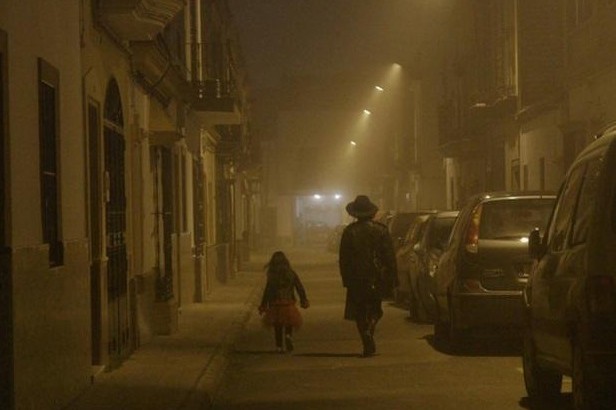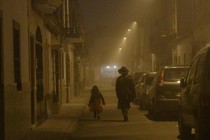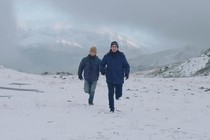Zoe: Not without my daughter
- Ander Duque moves from documentary to fiction with a film on the border between the two genres, which was filmed with a minimalist cast but has great dramatic, intimate and social power

Ander Duque is a filmmaker and musician from Bilbao who lives in Barcelona, and has made both award-winning short films, such as Sugus y brandy, and documentaries: it is on the characteristics of this genre that Zoe [+see also:
trailer
film profile] is built, his first fictional film, in competition in the official section of the 19th Málaga Film Festival. It was at last year’s edition of this very festival that the award for best actress went to Natalia de Molina for her performance in Food and Shelter [+see also:
trailer
interview: Juan Miguel del Castillo
film profile], a film with which Zoe shares its focus on social issues and certain themes.
Just like the aforementioned film, Zoe is about a young mother who is single, alone and suffering from financial woes, but the way in which the story is told sets it apart from Juan Miguel del Castillo’s film. Zoe was made with a minimalist team, made up of actors – many of whom are amateurs – and the director, who, by arming himself with a camera and strategically placing microphones in the real-life settings of the film, brings us natural performances, intimate domestic scenes, and an accurate portrayal of the rough reality afflicting the Andalusian people, which is surprising yet deeply moving.
Produced by the director on a very low budget, Zoe approaches fiction through non-fiction: the film came about when the lead actress (Rosalinda Galán, in her film debut on the back of much experience in theatre) talked to Duque about her town, Los Palacios y Villafranca (Seville), and her five-year-old niece Zoe, who is growing up in a harsh environment whilst holding onto her purity and imagination. These very virtues are used by Rosalinda – who plays the girl’s mother in the film – to fight to find a solution to their problems. Thanks to the family ties and trust between the two, the film exudes truth, affection and complicity, which the almost-absent director allows to flow freely.
Filmed using natural light with a realist camera that produces blurred images at times and punctuated by the music, composed by Duque with his lead actress, Zoe (produced by Uveme A.V.C.E.) is structured like a countdown to a fatal event that we can see coming right from the first (dreamlike) scene in the film: but this does not stop us from empathising with and taking an interest in this special relationship between the mother and daughter, who take shelter in childhood to escape the world.
Filming took place over a week (coinciding with the joyful Christmas period we see in the background of the main characters’ lives, subtly highlighting their poverty, like the other side of the supposed collective and imposed happiness of these holidays), alternating outdoor settings that aren’t exactly postcard-perfect with indoor locations full of understanding friends, terrific family members and picturesque memories (the grandmother remembering her married life, first communion photos…). This is all Duque needed to make the film, which leapt, on its own merits, from the Zonazine section to the Festival’s competition, where it has some surprises in store for the audience.
(Translated from Spanish)
Did you enjoy reading this article? Please subscribe to our newsletter to receive more stories like this directly in your inbox.

















